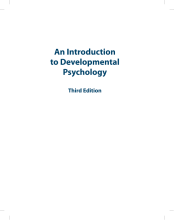Vulnerabilities, biological factors, learning theories
17 important questions on Vulnerabilities, biological factors, learning theories
What might increase the activation of a genetically inherited trait for anxiety?
- Epigenetics plays a significant role in this process.
Which gene is associated with anxiety and how does its allele variation affect individuals?
- A short allele of this gene can result in more stress or, conversely, thriving given positive experiences.
What are the environmental factors that can contribute to anxiety?
- Higher grades + faster learning
- Never study anything twice
- 100% sure, 100% understanding
What can resilience in the context of anxiety mean?
Can a single gene be definitively identified as the cause of anxiety disorders like OCD and panic disorder?
What are some genetic factors mentioned that may relate to anxiety?
How do coping strategies factor into the discussion of anxiety and resilience?
What areas does epigenetics encompass according to the diagram?
What triggers the negative schema activation according to the diagram?
- Enduring vulnerability (genetic & personality)
What characterizes negative schema activation?
- Hyperreactivity of the amygdala, hippocampus
- Alteration of the ventromedial prefrontal cortex
What is the role of avoidance behavior in anxiety development according to operant learning?
- This contributes to the reinforcement of avoiding anxiety triggers.
What parenting styles can influence the acquisition of the cognitive schema related to anxiety?
- Negligent parenting is considered the most detrimental for anxiety development.
How does the cognitive schema related to anxiety impact individuals experiencing anxiety?
- This cognitive distortion contributes to heightened anxiety levels.
What is the basis of anxiety according to the cognitive schema equation?
- In anxiety, perceived risk outweighs perceived resilience to handle it.
How can observational learning influence the development of fears in individuals?
- This learning process can impact the individual's fears and behaviors.
In Mineka et al.'s study, how did the baby apes react to snakes when exposed to different conditions?
- Apes learned faster to fear snakes compared to non-threatening objects.
What conclusion can be drawn from observing apes' responses to fear-inducing stimuli in Mineka et al.'s study?
- Observational learning significantly impacts fear acquisition in apes.
The question on the page originate from the summary of the following study material:
- A unique study and practice tool
- Never study anything twice again
- Get the grades you hope for
- 100% sure, 100% understanding































